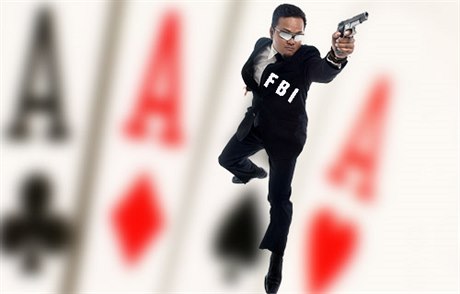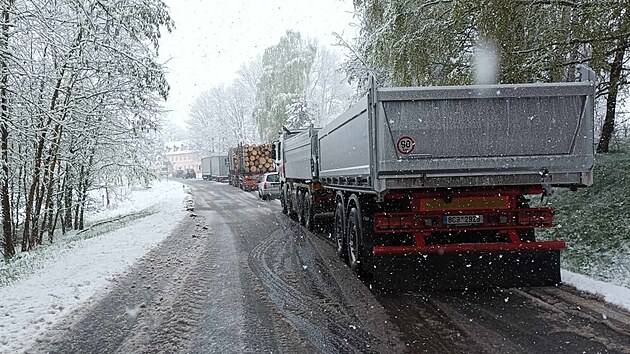Recent events in the US have put a spotlight on Internet gambling, an issue that also needs to be resolved in both the European Union and the Czech Republic.
For online gamblers in America, April 15 is being called Black Friday. The US Department of Justice in collaboration with the FBI has shut down the servers of the three largest operators of Internet poker: PokerStars, Full Tilt Poker and Absolute Poker. In addition, 11 people were charged with bank fraud, money laundering and the illegal operation of Internet gambling. The authorities have frozen 76 bank accounts in 14 countries that were being used to transfer money from gamblers. Authorities are also seeking $3 billion in unpaid taxes.
On an EU level, the most recent attempt to grapple with the online gambling issue is contained in a consultative Green Paper published by the European Commission this March. The aim is to eventually draft a directive which would set some kind of limit on virtual gambling. ‘Currenlty a powerful lobby has created a reluctance to intervene in Internet freedom.’
“The Green Paper simply describes market developments. It is up to individual member states to decide which Internet games to legalize and which to ban,” said Jan Řehola of the department for the state supervision of lotteries at the Czech Ministry of Finance, which has long been concerned with European law as it applies to gambling. However, he adds that the enforceability of the law and the right to close down illegal sites are still moot points. “This is a gray area. Currenlty a powerful lobby has created a reluctance to intervene in Internet freedom,” Řehola added.
PokerStars, one of the companies facing investigation in the US, is offering Internet poker played for money on a Czech domain. Naturally, it does not have a Czech license, and so any profits and taxes end up in the British crown dependency, the Isle of Man, where the operator is licensed. “We have already approached the Czech Police several times on this issue, but they have always declined to take action, saying that no criminal activity is being committed,” Radek Ležatka, press spokeswoman at the Ministry of Finance, told Czech Position. One problem is that the Czech Lottery Act does not cover the Internet. A new bill is in the pipeline that would rectify matters, but this is not set to come into force until 2013 even under the most optimistic forecasts.
In addition, there is no unequivocal opinion in the Czech Republic as to whether poker constitutes gambling or not. Although the Ministry of Finance believes it does, and only permits it to be played at tournaments held in licensed casinos, the Ministry of the Interior allows for the registration of civic associations whose purpose is to promote poker as a skill-based game and to organize tournaments.
A Czech mishmash
Currenlty only five operators in the Czech Republic can offer Internet gambling, which must take the form of fixed-odds betting. At the end of 2008, after drawn out negotiations, the then-Minister of Finance Miroslav Kalousek awarded licenses to Sazka, Synot Tip, Chance, Fortuna and Tipsport. However, operators with licenses from other European Union countries, such as bwin and Unibet, also offer fixed-odds betting in the Czech Republic. This is possible because of EU rules and the principle of the free movement of services within the EU. This in turn creates an uneven playing field on the Czech market, where, for instance, licensed Czech operators permit betting only after registration at a physical branch office, in order to prevent underage gambling.
In the Czech Republic, licensed firms are naturally irked by foreign poker servers. Their representatives make it clear that they too want their share of the growing popularity of card games, but are prevented from cashing in by current legislation. Both they and the State Treasury are losing out on possible earnings.
A survey carried out by Czech Position among four of the five betting agencies doing business in the Czech Republic and on the Internet (excluding Sazka, whose future is highly uncertain in light of ongoing bankruptcy proceedings) confirms that there is interest in other forms of online gambling too.
“If legislation opened the door for other products, such as online casino or poker, we are prepared to roll them out. The current situation is even worse than in the sphere of sports betting. Foreign operators without any Czech license have a 100 percent market share. The ideal solution for both the Czech state and customers is to open up the Internet lottery business to more products and to create clear, transparent operating rules,” said Zdeněk Brázdil, CEO of Chance, said. ‘We are trying to play by the local rules and to respect this country’s laws.’
Petr Šrain, press spokesman of Fortuna, said that a similar principle is involved here as was two years ago, when legislation banned Internet sports betting. “As far as the legalization of online poker is concerned, the latest news from the ministry says nothing. The possibilities are certainly very interesting, as is shown by the marketing being conducted in this country by foreign companies. As soon as the opportunity arises, we will get involved. We have services at our disposal. Theoretically we could enter the Czech market right now by way of our Malta-registered company, Fortuna Win. However, we are trying to play by the local rules and to respect this country’s laws,” he said.
Lubomír Ježek, the external relations manager of Tipsport, says foreign betting companies represent unfair competition. “While we have to fight for a license, they ride into this place like it was the Wild West. Now the situation regarding other Internet possibilities in the Czech Republic is very murky. Because of events surrounding Sazka we don’t even know what conditions will be set over the next few years. This is why it makes no sense for us to invest in the development of software. If ever a level playing field is created, then of course we would enter the internet gaming market,” he said.
Founder of Holding Synot, Ivo Valenta,said his firm is interested in the online casinos and poker business. “We already have the requisite infrastructure and we are expanding into regions where this kind of betting is already permitted or is set to be legalized within the next few months. We have the products ready and waiting and we are cooperating with some of the largest Internet gaming operators in the world, such as Boss Media, G-Tech G2 and Lottomatica,” he said.
“Operating online casinos from abroad is not on the cards. We are simply waiting for a change of legislation. We believe that this market will be opened up in the Czech Republic and that our politicians will at last understand, as they do in other countries, that the state will also benefit in terms of tax receipts and fees,” Valenta concluded.
The last savior...
Gambling in the US is seen by some people as an issue of basic freedom. Online gambling was heavily restricted by the Unlawful Internet Gambling Enforcement Act of 2006. “What the law does, though, is threaten the most fundamental of American values — freedom,” professional poker player Annie Duke wrote in reaction to Black Friday in an opinion for The New York Times.
“Licensing and regulating online gaming provides this freedom in a safe and regulated environment, while providing a mechanism to collect much needed tax dollars. However you might feel about gambling on the Internet, I would suggest that gambling with freedom is far more risky,” Duke said.
In point of fact, the stance of the US government to gambling is nowhere near as negative as might appear from current events surrounding internet poker. For Americans, gambling is a bit like the aristocratic cavalier Don Diego de la Vega, who whenever the US finds itself in a mess dons his black mask and, as Zorro the avenger, rescues the country from its predicament. This was how it was during the post Civil War reconstruction, the Great Depression, and after the tax revolt of the late 1970s.
Basically, whenever the US government is confronting the thorny issue of ensuring sufficient income by traditional means, it has legalized some form of gambling. And so it would be no big surprise if the recent shutdown of poker servers was simply the start of a larger trend to relax restrictions, though not without some form of regulation. Black Friday might soon be renamed Good Friday 2.0.
The Czech Republic should waste no time in lifting restrictions and introducing effective regulation.
David Kasl contributed to this article





